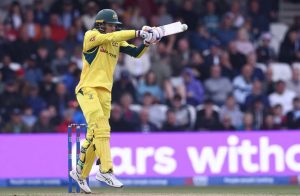
Mitch McConnell has confessed over the years that as a junior member of the Senate, he longed to be the one whom reporters chased down for information as he jealously watched his more senior colleagues being pursued by the media while he was ignored.
“The truth is, when I got here, I was just happy if anybody remembered my name,” he said on Wednesday in announcing that his time as leader was coming to an end. He noted that President Ronald Reagan had once misidentified him as Mitch O’Donnell.
“Close enough, I thought,” he recalled.
Then, after Mr. McConnell, a Kentucky Republican, had accumulated real power in the Senate as both majority and minority leader over a 17-year stretch and deftly applied it to bend the Senate to his will, he clammed up. He often refused to even acknowledge the existence of the press as reporters posed questions and he strolled by, sphinx-like.
One thing Mr. McConnell was always clear about, however, was that he saw the United States as the globe’s essential force, embracing Reagan’s view that the nation’s role was to combat the so-called “evil empire” of what was then the Soviet Union. He reiterated that view on Thursday in his first day as a lame-duck leader.
“America is the world’s pre-eminent superpower — economically and militarily. But our influence and prosperity are facilitated by a network of partnerships,” Mr. McConnell said. “The strength of these alliances rests on the credibility of the commitments we make to our friends.”
Yet a growing number of his fellow Republicans hold a different view of America’s role in the world, and Mr. McConnell took that as his cue to step aside, though he undoubtedly will continue to push military assistance to Ukraine for its fight against what is now Russia.
Mr. McConnell’s clash with the emerging isolationism in his party began in Cleveland, of all places, during the 2016 Republican National Convention, where Donald J. Trump was about to be officially named the party’s presidential nominee. Mr. Trump chose that occasion to disclose that he was not inclined to defend NATO allies unless they were better about meeting their financial obligations to the alliance.
To Mr. McConnell, a fervent believer in and defender of NATO, that was a naïve blunder. He chalked it up to a “rookie mistake” by a nominee who was not well versed in foreign policy and simply needed guidance from a veteran internationalist such as himself.
But it turned out to have been Mr. McConnell who made the mistake. In the years that followed, it became clear that Mr. Trump truly disdained NATO and was more than willing to let it crumble. That belief has increasingly gained traction with right-wing Republicans and has reflected how profoundly Mr. McConnell had fallen out of step with the mood of his own party.
Mr. McConnell initially considered Mr. Trump something of a curiosity, a politician who succeeded by offending people, denigrating the Senate icon John McCain and others with his rallies and trolling on social media.
As chaos ensued during Mr. Trump’s first days in office in 2017 over immigration policy, Mr. McConnell was hardly alarmed — far from it. He said instead that Senate Republicans were pleased to discover that Mr. Trump was a true conservative who was pursuing traditionally right-of-center policies.
To Mr. McConnell, Mr. Trump was a useful tool, a vessel who would allow him and Donald F. McGahn II, the White House counsel, to fill the federal courts with vetted conservative judges whom Mr. Trump could nominate and Mr. McConnell would then speed through the Senate. They succeeded beyond their wildest expectations, installing 234, including three Supreme Court justices.
Mr. McConnell had helped Mr. Trump immeasurably in his presidential bid by holding open a Supreme Court seat. That gave evangelicals and other conservatives leery of Mr. Trump’s character a reason to rally around him with the certainty that the next president would get an immediate appointment to the court.
But Mr. McConnell eventually found himself in the same place as many who ally themselves with Mr. Trump — the target of attacks. Mr. Trump went after Mr. McConnell for failing to overturn the Affordable Care Act, and for working with Democrats on spending legislation to keep the government funded, among other things.
Ultimately, they were at odds over Mr. Trump’s election denialism and his role in fomenting the Jan. 6, 2021, attack on the Capitol. But Mr. McConnell joined most other Republicans in pushing through the acquittal of Mr. Trump in his impeachment trial on the charge of inciting insurrection, which prevented a move to bar him from holding future office. In a scathing speech afterward in which he said Mr. Trump was guilty of “disgraceful dereliction of duty,” the Senate leader argued that the former president’s fate should be decided by the courts.
Now as the courts consider Mr. Trump’s role, he is back as the leader of Republicans and Mr. McConnell is retreating to the sidelines, the odd man out in a party that is quickly coalescing again around Mr. Trump.
“I think it’s really important that whoever our next Senate leader is shares the same priorities and goals as whoever the Republican president is,” said Senator Roger Marshall, Republican of Kansas. “And whether it’s President Trump or any president, we want the Republican leader to be on the same page with them and share their priorities.”
It was startling on Wednesday when Mr. McConnell, who in typical fashion broke his decision to step aside after zealously guarding against leaks, found himself on the receiving end of more gracious comments from Democrats than from hard-right Republicans fed up with his leadership.
That would have been unthinkable a few years ago, after he infuriated Democrats by denying President Barack Obama a chance to fill a Supreme Court vacancy in a presidential election year in 2016 only to turn around four years later and jam through a highly conservative Trump nominee just before the election.
Though his time is running out, Mr. McConnell is far from finished. He said he intended to remain leader through the November elections and will certainly use his standing to keep up a daily drumbeat on the floor in support of assisting Ukraine and other U.S. allies even if some of his colleagues disagree.
Then he has two years remaining in his Senate term and will be free of the shackles of leadership. Perhaps he might then decide to answer some of those questions he once wished were aimed in his direction, but has since sealed his lips to avoid.
“I will finish the job the people of Kentucky hired me to do as well — albeit from a different seat in the chamber,” Mr. McConnell said. “I am looking forward to that.”







